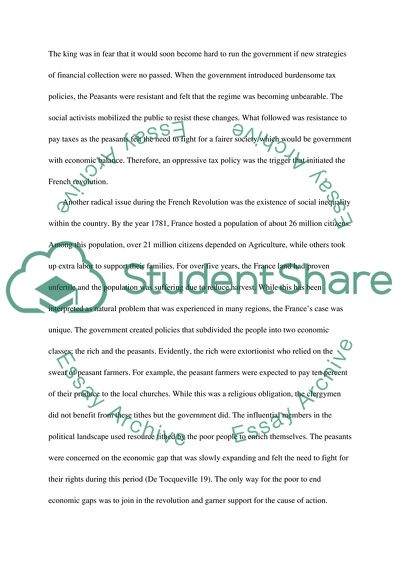Cite this document
(“Causes and Impacts of the French Revolution Research Paper”, n.d.)
Causes and Impacts of the French Revolution Research Paper. Retrieved from https://studentshare.org/history/1694199-examine-the-conditions-that-led-to-the-french-revolution-in-1789-and-the-changes-that-occurred-in-france-as-a-result-of-the-revolution-analyze-compare-and-contrast-the-french-revolution-to-the-american-revolution
Causes and Impacts of the French Revolution Research Paper. Retrieved from https://studentshare.org/history/1694199-examine-the-conditions-that-led-to-the-french-revolution-in-1789-and-the-changes-that-occurred-in-france-as-a-result-of-the-revolution-analyze-compare-and-contrast-the-french-revolution-to-the-american-revolution
(Causes and Impacts of the French Revolution Research Paper)
Causes and Impacts of the French Revolution Research Paper. https://studentshare.org/history/1694199-examine-the-conditions-that-led-to-the-french-revolution-in-1789-and-the-changes-that-occurred-in-france-as-a-result-of-the-revolution-analyze-compare-and-contrast-the-french-revolution-to-the-american-revolution.
Causes and Impacts of the French Revolution Research Paper. https://studentshare.org/history/1694199-examine-the-conditions-that-led-to-the-french-revolution-in-1789-and-the-changes-that-occurred-in-france-as-a-result-of-the-revolution-analyze-compare-and-contrast-the-french-revolution-to-the-american-revolution.
“Causes and Impacts of the French Revolution Research Paper”, n.d. https://studentshare.org/history/1694199-examine-the-conditions-that-led-to-the-french-revolution-in-1789-and-the-changes-that-occurred-in-france-as-a-result-of-the-revolution-analyze-compare-and-contrast-the-french-revolution-to-the-american-revolution.


